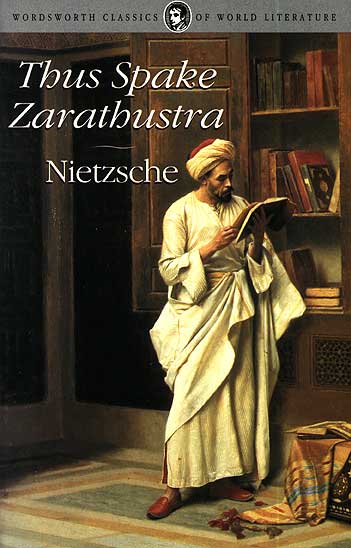

These same ideas leaked into the existing religions of Judaism (Satan) and emerging Christianity (the Magi), and eventually into the culture of Islam (the Divs or demons). Zarathustra’s ideas were carried out of Central Asia by the Greeks of Alexander’s army, whence they were eventually incorporated into Greek philosophy (Pythagoras) and even the devotions of the subsequent Roman military (Mithraism). He invented monotheism (the one, invisible, entirely spiritual, God, Ahura Mazda), established the metaphysical and ethical dualism which is the foundation of Jewish, Christian and Muslim religious sentiment (Ahriman, the Power of Evil, as Mazda’s opponent who tempts and traps us), and created much of the spiritual symbolism and ritual which permeate Western culture (the halo representing the light of Mazda, angels as divine messengers, heaven, the virgin birth, the advent of a spiritual saviour, resurrection of the dead, final judgment, baptism, the mystical meal among worshippers, among others) There’s a good argument to be made that the Persian prophet Zarathustra, like the Sanskrit in which his thoughts are written down, is a primary source of Western culture. It is therefore not an ideology to be seriously recommended.


But it is also the ideology of the past, one that has caused immense harm to humanity and the planet. Kriwaczek thinks that Zoroastrianism (the Greek version of Zarathustra’s religion) is the “ideology of the future.” He may well be right. That he is often wrong in his judgment doesn’t diminish the importance of his creativity. Because Kriwaczek is not caught up in established disciplinary puzzles, he can make interesting connections that the professional historians of religion largely ignore or overlook. The talented amateur lives! Paul Kriwaczek has been an international car smuggler, a dental surgeon, a BBC radio producer, and a television film-maker before he wrote this book about the obscure but powerfully influential Persian religious figure, Zarathustra.


 0 kommentar(er)
0 kommentar(er)
